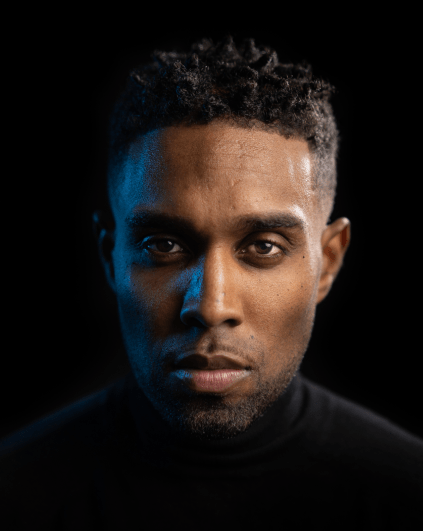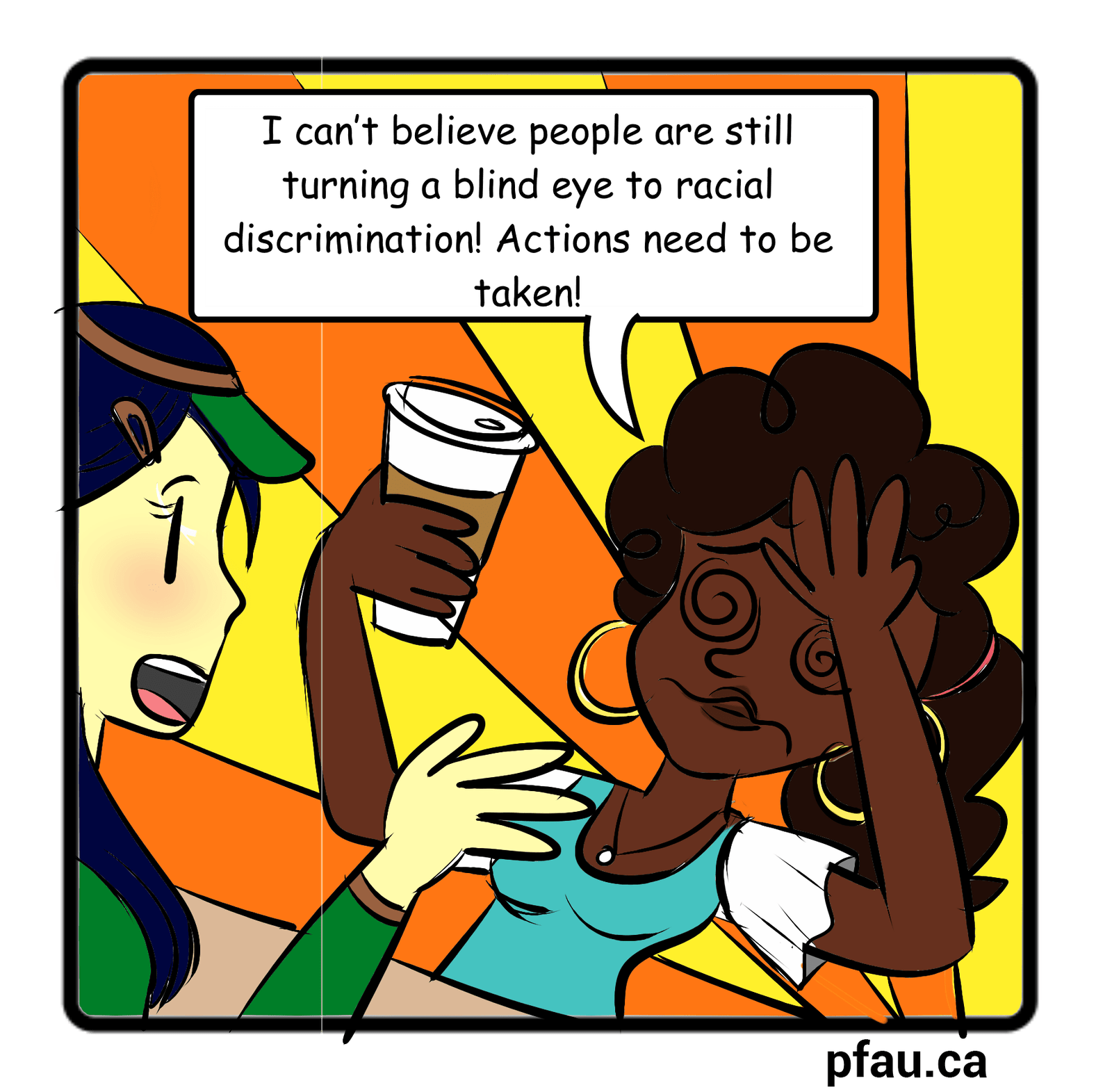We interviewed Reggie Waterman, the director and founder of his own branding agency, XPRESSIVE, about the student experience as a Black man. Although laws have been changed and attitudes adjusted, structural racism is real in Canada and it exists in our educational institutions too. Black, Indigenous, South Asian, and other minority students often experience racism and ethnocentrism on and off campus.

In 2019, Reggie uncovered a gap in the post-grad job search experience and he has made it his mission to close the gap by providing students with a winning formula to ensure career success. He is particularly interested in how students who identify as visible minorities can use this to their advantage when creating their personal career branding. During the height of the COVID-19 pandemic, Reggie also decided to facilitate a Zoom series called Discover Your ‘Other” Self to provide inspiration and help people overcome life’s challenges, especially during these abnormal times. More importantly, he’s achieved all of this while facing racial barriers as a Black student and businessman.
_
What kinds of barriers to Black students face compared to non-racialized students?
I think the biggest barrier is the access to resources. For example, when I went to university, I did not see a lot of Black people, and part of the reason for that is we just do not have the same access to resources. A lot of the Black people that are my age are first generation Canadians whose parents immigrated from the Caribbean or Africa. As a result, they do not have access to the financial and social resources necessary to obtain higher education themselves, and build social networks to help their children to access gainful employment. Often the education they gained in their home country is not recognized in Canada, so they are forced to work jobs that do not require higher education in order to support their families. Since they are working hard to help their children to improve their socioeconomic status, which makes children of these immigrants, like me, trailblazers in education and work in Canada.
On the other hand, the majority of White Canadians have their networks already established since their families have been here for generations. This establishment creates a situation where social networks are dominated by White Canadians, who may have different social norms and expectations than Black Canadians, making it hard to break into the group and be accepted. Social networks are essential for access to education and employment. Without these social networks, it can be hard to get referrals and endorsement to help young Black to propel their careers forward.
What can we do to break down some of these barriers?
I think that institutions, such as schools and well-established corporations, need to really take a stand if they truly believe in having a diverse workforce. The way to do that is by putting audits in place and promoting more visible minorities to positions of power. What I mean by audits is, for example, the HR team, on a semi annually or annual basis, should look at the landscape of the organization and actively adjust it to make sure that it represents the multicultural reality of Canadian society. They also need to hold their teams accountable for diversity practices. For example, what are they doing to promote inclusion? When they are hiring new people, should there be a specific allocations for visible minority hires? Do their teams truly reflect diversity? It’s one thing to say that you support diversity, and another thing to do it in practice.
How can self-identifying as a minority help with your personal brand?
Personal branding is about uncovering one’s superpower and leverage it in a manner that you could add value to yourself and others. Focus on how you serve others, give not take. There currently are not a lot of visible minorities in positions of authority and leaderships in Canada and the US. Certainly, things have improved over the years, but more can be done. If you identify as a visible minority, this can be turned into a strength as your experiences and perspectives are valuable to companies as they attempt to diversity and reach a wider global audience. Turn what appears on the surface as a barrier into a strength. It’s really about mindset and finding tools to promote your own unique message. That is where Xpressive comes in, as an agency that I launched, it focuses on helping individuals to build their brand to help them demonstrate and showcase thought leadership and value.
What tools are most valuable for students and young adults who are trying to promote their personal brand?
LinkedIn is definitely a tool to build your personal brand and promote your unique professional expertise. For example, if you are interested in getting into the marketing industry, do a simple post on how to do a marketing plan, like “The five top things you need to have in your marketing plan”. Thought leadership is about your thoughts. You want to demonstrate the knowledge that you have and provide value to your connections and followers.
Recommended Books and Resources
Think and Grow Rich: The Landmark Bestseller Now Revised and Updated for the 21st Century (Think and Grow Rich Series) by Napoleon Hill Arthur R. Pell
The Lemonade Life: How to Fuel Success, Create Happiness, and Conquer Anything by Zack Friedman
Thank you, Reggie, for sharing the excellent advice with us and our readers!
_
_
Missed the podcast? Listen here:
_
_
For more advice about writing, check out our weekly podcast or subscribe to our monthly newsletter.
_
To get more help with your assignments, book a 20 minute discovery session with us and start your journey to reaching your full potential on the page, and in life.
Both the written, visual, audio, and audiovisual content of this post has been created by and is the intellectual property of Lisa Pfau and PFAU Academic Writing. Please do not replicate any of the above content without our consent. However, please do feel free to share this post and its authorship widely.



